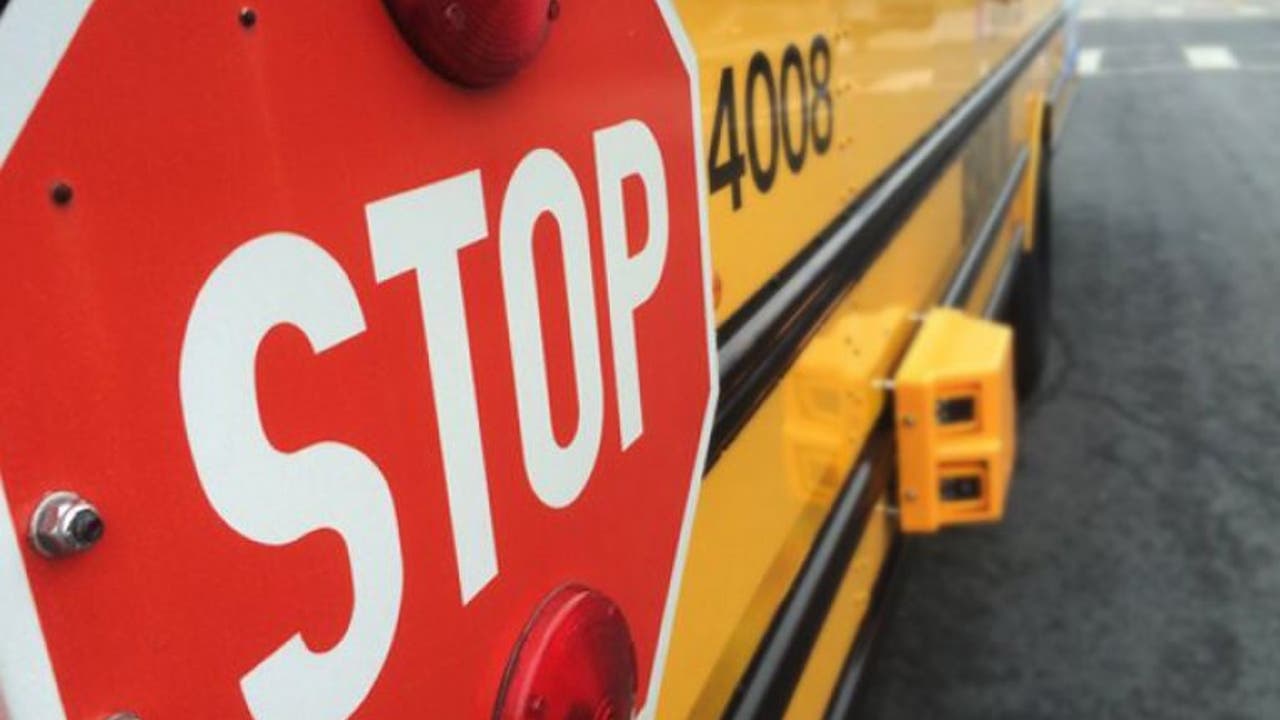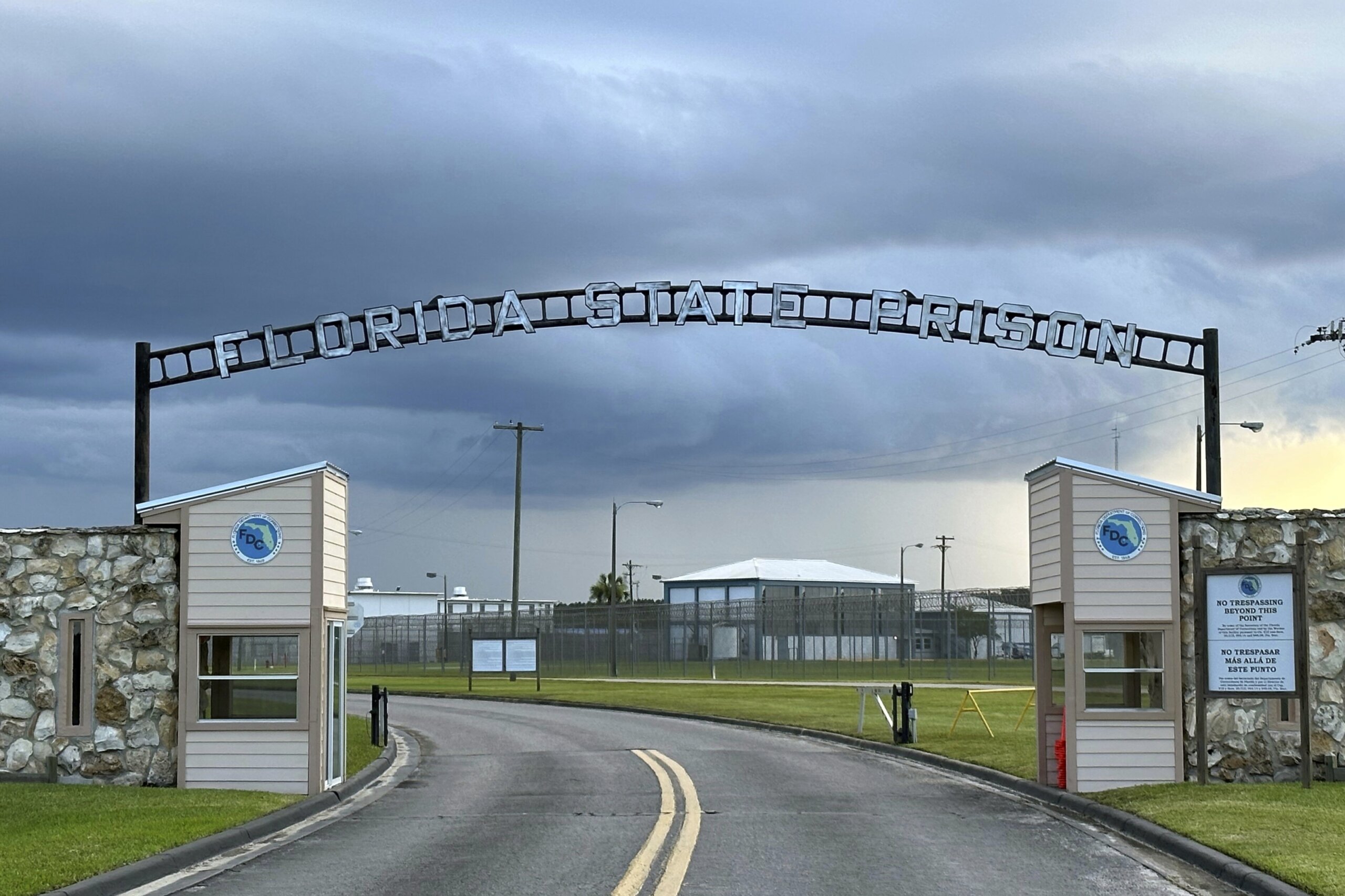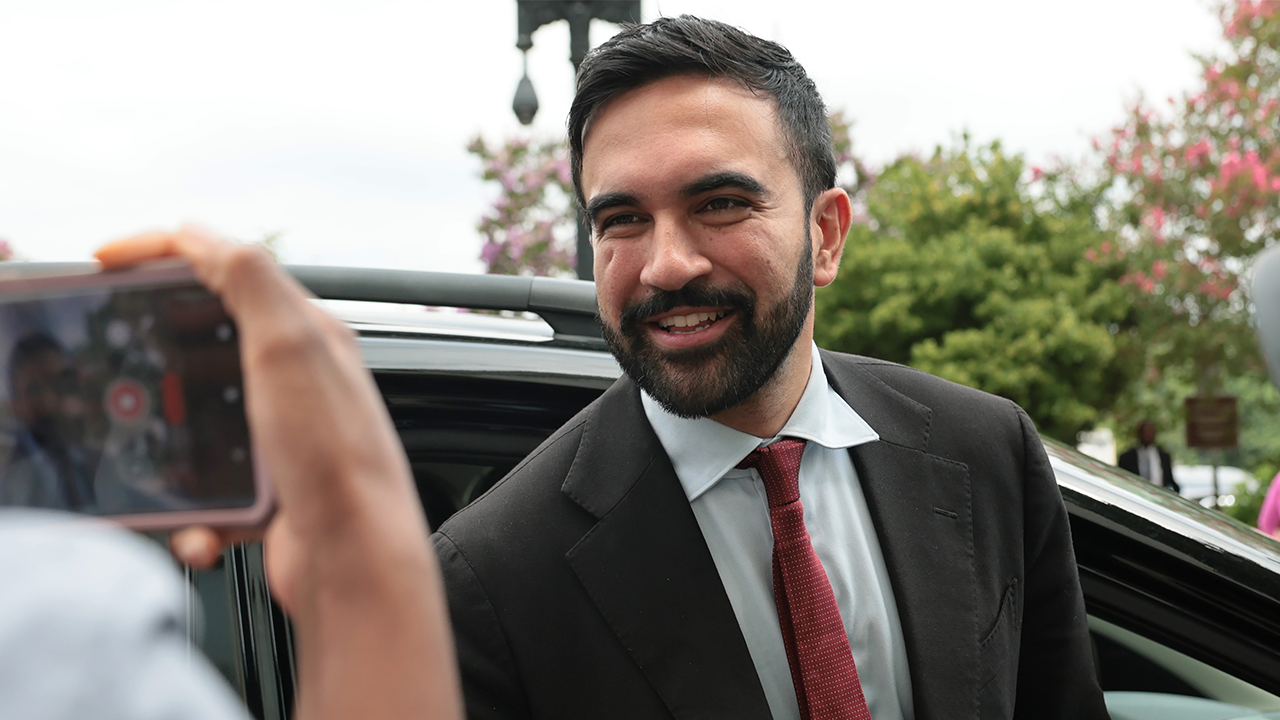Florida
Man left in critical condition after being attacked by shark that he caught while fishing in Florida

A man was left in critical condition by a shark attack, suffering a severe bite to his right forearm while he was fishing in Florida yesterday morning.
The man, who is in his 40s, was on a boat off Fernandina Beach, north of Jacksonville, caught the shark while fishing and tossed the fish back in the water after it bit him, Action News Jax reported.

The Nassau County Sheriff’s Office Marine Unit received a distress call over its emergency radio at 11:15 a.m. and when they reached the boat, they found the man had “lost a lot of blood,” according to a Facebook video the sheriff posted.
“Upon arrival, NCSO deputies found the victim with a critical injury. Acting swiftly, a deputy boarded the vessel and applied a tourniquet to stop the bleeding,” NCSO said on Facebook.
“The victim was immediately airlifted to a nearby hospital. He is currently listed in critical condition but is expected to recover.”
Nassau County, Florida, is about 150 miles north of Volusia County, considered the “shark bite capital of the world,” where there were 17 bites in 2021, according to the Florida Museum of Natural History’s International Shark Attack File.
Individuals in the state suffered 16 attacks last year, or 44% of all of the attacks in the US.

Florida
UF researchers deploy robotic rabbits across South Florida to fight Burmese python explosion

Five things to know about Florida’s Python Challenge
Burmese pythons have a negative impact on native wildlife. Every year you can participate in a contest that helps eliminate the threat.
- The robots mimic the movements and body temperature of real rabbits, a favored prey of pythons.
- The project is funded by the South Florida Water Management District and builds upon previous research on python behavior.
- Researchers hope this innovative approach will be a “game changer” in controlling the python population.
Scattered in python hot spots among the cypress and sawgrass of South Florida is the state’s newest weapon in its arsenal to battle the invasive serpent, a mechanical lure meant to entice the apex predator to its ultimate demise.
Just don’t call it the Energizer bunny.
Researchers at the University of Florida have outfitted 40 furry toy rabbits with motors and tiny heaters that work together to mimic the movements and body temperature of a marsh rabbit — a favorite python meal.
They spin. They shake. They move randomly, and their creation is based on more than a decade of scientific review that began with a 2012 study that transported rabbits into Everglades National Park to see if, and how quickly, they would become python prey.
“The rabbits didn’t fare well,” said Robert McCleery, a UF professor of wildlife ecology and conservation who is leading the robot bunny study that launched this summer.
Subsequent studies revealed that pythons are drawn to live rabbits in pens with an average python attraction rate of about one python per week. But having multiple live rabbits in multiple pens spread across a formidable landscape is cumbersome and requires too much manpower to care for them.
So, why not robot bunnies?
“We want to capture all of the processes that an actual rabbit would give off,” McCleery said. “But I’m an ecologist. I’m not someone who sits around making robots.”
Instead, colleague Chris Dutton, also a UF ecology professor but more mechanically adept, pulled the stuffing out of a toy rabbit and replaced it with 30 electronic components that are solar-powered and controlled remotely so that researchers can turn them on and off at specific times.
The rabbits were placed in different areas of South Florida in July 2025 for a test phase that includes a camera programmed to recognize python movement and alert researchers when one nears the rabbit pen. One of the biggest challenges was waterproofing the bunnies so that the correct temperature could still be radiated.
McCleery was reluctant to give specifics on where the rabbit pens are located.
“I don’t want people hunting down my robo-bunnies,” he said.
Version 2.0 of the study will add bunny scent to the stuffed rabbits if motion and heat aren’t enough to fool the snakes.
State efforts to mitigate python proliferation have included a myriad of efforts with varying degrees of success.
Renowned snake hunters from the Irula tribe in India were brought in to hunt and share their skills. There have been tests using near-infrared cameras for python detection, special traps designed, and pythons are tracked by the DNA they shed in water, with radio telemetry, and with dogs. Also, the annual Florida Python Challenge has gained legendary status, attracting hundreds of hunters each year vying for the $10,000 grand prize.
This year’s challenge runs July 11 through July 20. As of the first day of the challenge, there were 778 registered participants, from 29 states and Canada.
But possibly the highest profile python elimination program is the 100 bounty hunters who work for the South Florida Water Management District and the Florida Fish and Wildlife Conservation Commission.
The hunters have removed an estimated 15,800 snakes since 2019 and were called the “most effective management strategy in the history of the issue” by district invasive animal biologist Mike Kirkland.
Kirkland oversees the district’s hunters. He gave a presentation July 7 to the Big Cypress Basin Board with updates on python removal that included McCleery’s robo-bunny experiment, which the district is paying for.
“It’s projects like (McCleery’s) that can be used in areas of important ecological significance where we can entice the pythons to come out of their hiding places and come to us,” Kirkland said at the board meeting. “It could be a bit of a game changer.”
The Burmese python invasion started with releases — intentional or not — that allowed them to gain a foothold in Everglades National Park by the mid-1980s, according to the 2021 Florida Python Control plan. By 2000, multiple generations of pythons were living in the park, which is noted in a more than 100-page 2023 report that summarized decades of python research.
Pythons have migrated north from the park, with some evidence suggesting they may be able to survive as far north as Georgia if temperatures continue to warm and more pythons learn to burrow during cold snaps.
In Palm Beach County, 69 pythons have been captured since 2006, according to the Early Detection and Distribution Mapping System, or EDDMapS. In addition, four have been found dead, and 24 sightings have been reported.
Big Cypress Basin board member Michelle McLeod called McCleery’s project a “genius idea” that eliminates the extra work it would take to manage live rabbits.
McCleery said he’s pleased that the water management district and FWC, which has paid for previous studies, are willing to experiment.
“Our partners have allowed us to trial these things that may sound a little crazy,” McCleery said. “Working in the Everglades for 10 years, you get tired of documenting the problem. You want to address it.”
McCleery said researchers did not name the robot rabbits, although he did bring one home that needed repair. His son named it “Bunbun.”
Kimberly Miller is a journalist for The Palm Beach Post, part of the USA Today Network of Florida. She covers real estate, weather, and the environment. Subscribe to The Dirt for a weekly real estate roundup. If you have news tips, please send them to kmiller@pbpost.com. Help support our local journalism, subscribe today.
Florida
Florida’s school voucher surge draws fire from public education advocates

Florida’s school voucher surge draws fire from critics
As Florida’s new state budget channels more money toward private and charter schools, public school advocates are sounding the alarm about the future of public education — warning that already-strained classrooms could suffer further setbacks.
ORLANDO, Fla. – As Florida’s new state budget channels more money toward private and charter schools, public school advocates are sounding the alarm about the future of public education — warning that already-strained classrooms could suffer further setbacks.
What we know:
Florida’s latest state budget increases funding for private school vouchers and charter schools, prompting backlash from public school advocates.
While there was also a boost to public school funding and teacher pay, education policy experts say it does not keep pace with inflation, and many schools may still feel the financial strain.
CLICK TO DOWNLOAD THE FOX LOCAL APP
Charter school growth and voucher expansion are central points of contention, especially policies allowing public-to-charter school conversions and co-locations.
The issue took center stage on Tuesday at the EDUVOTER Action Network Roundtable: Defending Public Education held in Tampa.
What we don’t know:
The impact of the funding changes on long-term public school performance and enrollment is unclear. It’s also uncertain how much influence public education advocates will have ahead of the next legislative session in October.
Ongoing lawsuits may delay or halt the implementation of certain charter school policies, but their outcomes remain to be seen.
The backstory:
Florida’s school voucher and charter school initiatives have expanded under Gov. Ron DeSantis, with a focus on offering parents more choice in where to send their children. Critics argue that this has come at a steep cost to the traditional public school system, which continues to face teacher shortages, resource gaps, and infrastructure needs.
The tension has been building for years as the state increasingly funds alternatives to public education.
What they’re saying:
Speakers at this week’s roundtable in Tampa — including parents, education advocates, and policy analysts — painted a stark picture of public schools left behind.
“Significant amounts of money leaving public education to go to private and home schools,” said Norín Dollard of the Florida Policy Institute.
Many worry that the growing role of for-profit charter operators and private schools funded by public dollars is eroding the quality and equity of Florida’s education system.
“Public schools are in jeopardy,” said Soraya Marquez, a roundtable attendee.
SIGN-UP FOR FOX 35’S BREAKING NEWS, DAILY NEWS NEWSLETTERS
Critics emphasized that most private schools accepting vouchers are religious and unaccredited, limiting real access for many families.
“The truth of the matter is, charter schools — although on paper are public schools — they are run by education management organizations, which are for profit,” said Crystal Etienne, President of EDUVOTER Action Network. “They get all of your tax dollars, but in addition to that, they have investors. They make money. This is a money grab at the expense of children.”
The other side:
Gov. Ron DeSantis has defended the expanded voucher program as a way to give families more control over their children’s education.
“Whether you are super wealthy or poor, you have options as a parent to put your child in the best learning environment,” DeSantis said.
What’s next:
The Florida Legislature will convene in October.
The Source: This story was written based on information shared by organizers and speakers at the EDUVOTER Action Network Roundtable: Defending Public Education, the State of Florida, and Florida Gov. Ron DeSantis.
Florida
Florida man who killed 2 people outside a bar is scheduled to be executed – WTOP News

STARKE, Fla. (AP) — A man who fatally shot a man and woman outside a Florida bar as part of…
STARKE, Fla. (AP) — A man who fatally shot a man and woman outside a Florida bar as part of an attempted revenge killing is scheduled to be executed on Tuesday.
Michael Bernard Bell, 54, is scheduled to receive a lethal injection at Florida State Prison near Starke, barring a last-day reprieve. He was convicted in 1995 and sentenced to death for the murders of Jimmy West and Tamecka Smith.
Bell would be the eighth person put to death in Florida this year, with a ninth scheduled for later this month. The state executed six people in 2023, but carried out only one execution last year.
Twenty-five men have already been executed in the U.S. this year, tying last year’s total.
Florida has executed more people than any other state this year, while Texas and South Carolina are tied for second place with four each. Alabama has executed three people, Oklahoma has killed two, and Arizona, Indiana, Louisiana, Mississippi and Tennessee each have killed one.
In December 1993, Bell spotted what he thought was the car of the man who fatally shot his brother earlier that year, according to court records. Bell was apparently unaware that the man had sold the car to West.
Bell called on two friends and armed himself with an AK-47 rifle, authorities said. They found the car parked outside a liquor lounge and waited. When West, Smith and another woman eventually exited the club, Bell approached the car and opened fire, officials said.
West died at the scene, and Smith died on the way to the hospital. The other woman escaped injury. Witnesses said Bell also fired at a crowd of onlookers before fleeing the area. He was eventually arrested the next year.
Bell was later convicted of three additional murders. He fatally shot a woman and her toddler son in 1989, and he killed his mother’s boyfriend about four months before the attack on West and Smith, officials said.
Attorneys for Bell have filed appeals with the Florida Supreme Court and the U.S. Supreme Court.
The lawyers argued in their state filing that Bell’s execution should be halted because of newly discovered evidence about witness testimony. But justices unanimously rejected the argument last week and pointed to overwhelming evidence of Bell’s guilt in a 54-page opinion.
Bell’s attorneys filed a similar petition with the U.S. Supreme Court on Thursday, but the panel has not yet issued a ruling.
Copyright
© 2025 The Associated Press. All rights reserved. This material may not be published, broadcast, written or redistributed.
-

 News1 week ago
News1 week agoVideo: Trump Compliments President of Liberia on His ‘Beautiful English’
-

 News6 days ago
News6 days agoVideo: Clashes After Immigration Raid at California Cannabis Farm
-

 Politics1 week ago
Politics1 week agoJournalist who refused to duck during Trump assassination attempt reflects on Butler rally in new book
-
Business1 week ago
Commentary: Does America need billionaires? Billionaires say 'Yes!'
-

 Politics1 week ago
Politics1 week agoObama officials used dossier to probe, brief Trump despite knowing it was unverified 'internet rumor'
-

 News1 week ago
News1 week agoDOGE keeps gaining access to sensitive data. Now, it can cut off billions to farmers
-

 World6 days ago
World6 days agoNew amnesty law for human rights abuses in Peru prompts fury, action
-

 News6 days ago
News6 days agoTrump heads to Texas as recovery efforts from deadly flood continue




















